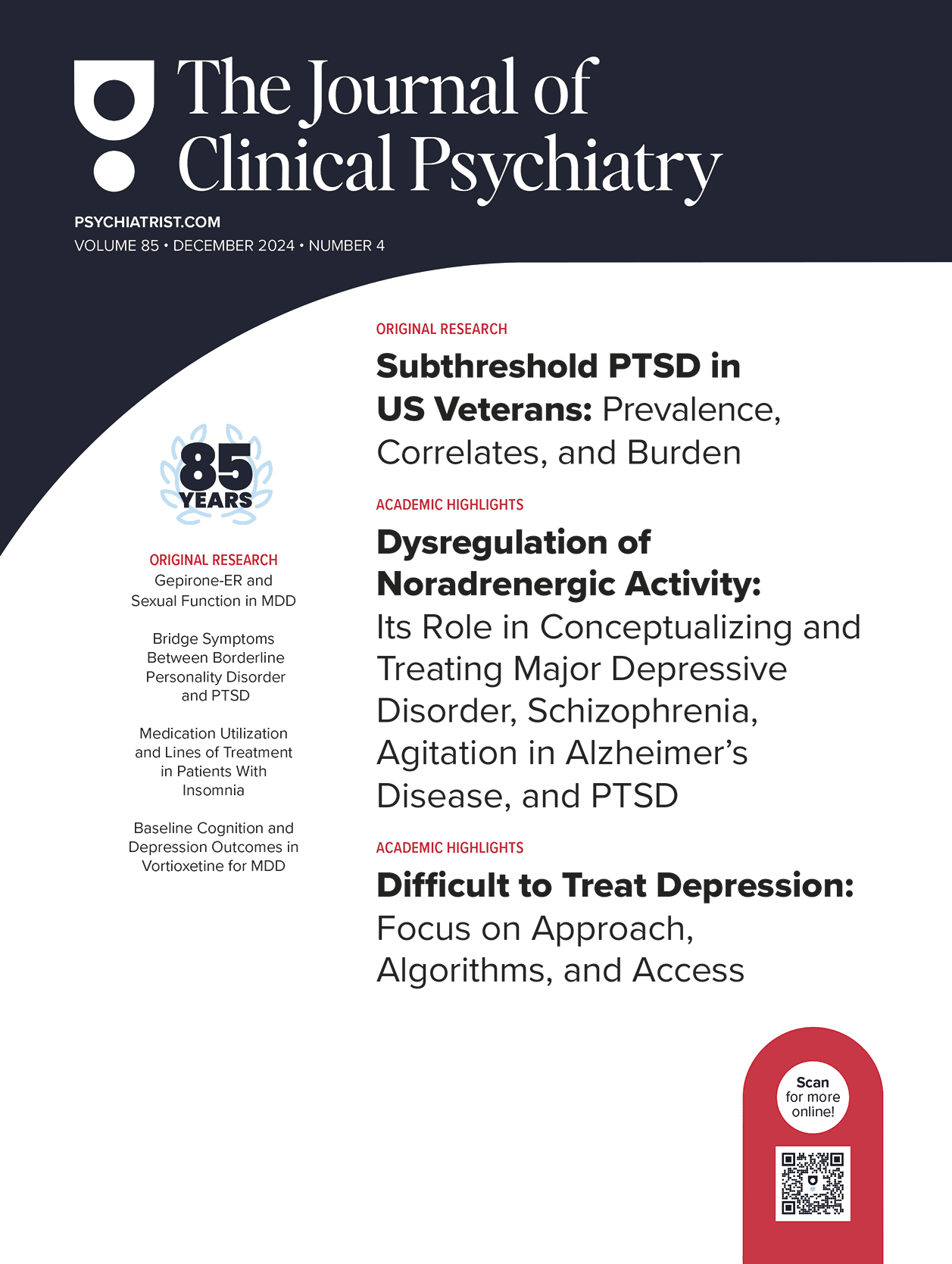Objective: Many patients with major depressive disorder (MDD) or bipolar disorder (BD) experience impairments in daily life. We investigated whether patients with single-episode MDD (MDD-s), recurrent MDD (MDD-r), and BD differ in functional impairments, whether time since last episode (syndromal state, in 4 categories) contributes to impairment, whether this association is moderated by diagnosis, and the role of depressive symptoms.
Method: Data were derived from 1,664 participants in the Netherlands Study of Depression and Anxiety (MDD-s, n = 483; MDD-r, n = 1,063; BD, n = 118), from 2006 into 2009. In additional analyses, 530 healthy controls were included. DSM-IV-TR diagnosis and information about syndromal state were based on the Composite International Diagnostic Interview. Psychosocial impairment was assessed with the World Health Organization Disability Assessment Schedule 2.0 (WHODAS 2.0). Adjusted associations between diagnosis, syndromal state, impairment, and depression severity were investigated.
Results: Syndromal state not being taken into account, patients with BD experienced more functional impairment than patients with MDD-s or with MDD-r, and in all diagnostic groups, impairments decreased with increasing time since last episode. However, impact of syndromal state on functioning showed a different course between diagnostic groups (mean [SD] WHODAS score: current: MDD-s 30.8 [2.8], MDD-r 32.7 [0.9], BD 37.7 [2.1], P = .07; recently remitted: MDD-s 21.7 [3.5], MDD-r 24.0 [1.2], BD 22.1[3.2], P = .7; remitted: MDD-s 10.6 [3.7], MDD-r 21.6 [1.4], BD 19.2 [4.4], P = .02; remitted > 1 year: MDD-s 13.3 [0.6], MDD-r 14.7 [0.5], BD 17.1 [2.2], P = .8). Depression severity accounted for these differences. Moreover, functioning in all remitted patients remained impaired when compared to that in healthy controls.
Conclusion: Functional recovery may take up to 1 year after syndromal remission in recurrent depressive and bipolar disorder, mainly due to residual depressive symptoms, emphasizing the need for prolonged continuation treatment.
Continue Reading...
Did you know members enjoy unlimited free PDF downloads as part of their subscription? Subscribe today for instant access to this article and our entire library in your preferred format. Alternatively, you can purchase the PDF of this article individually.
Please sign in or purchase this PDF for $40.00.
Save
Cite
Already a member? Login




